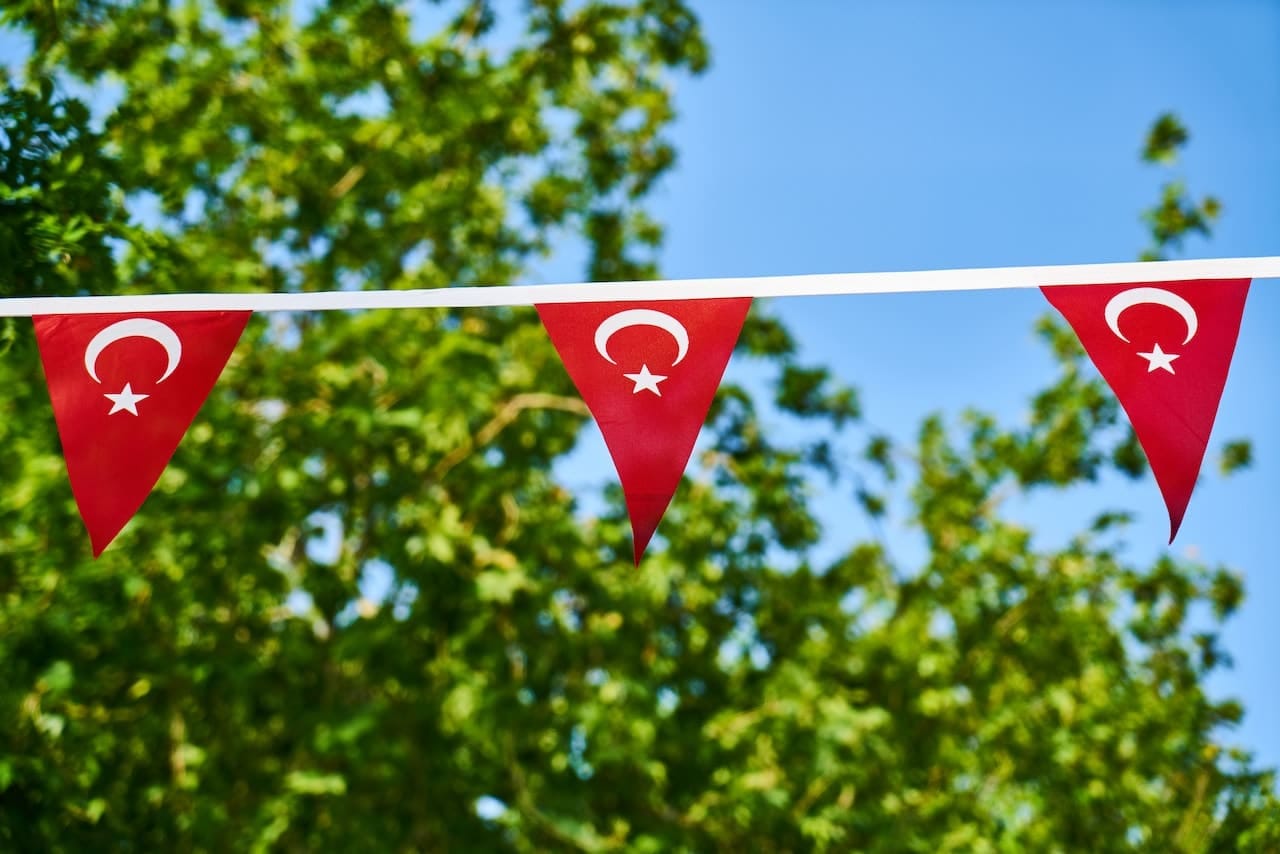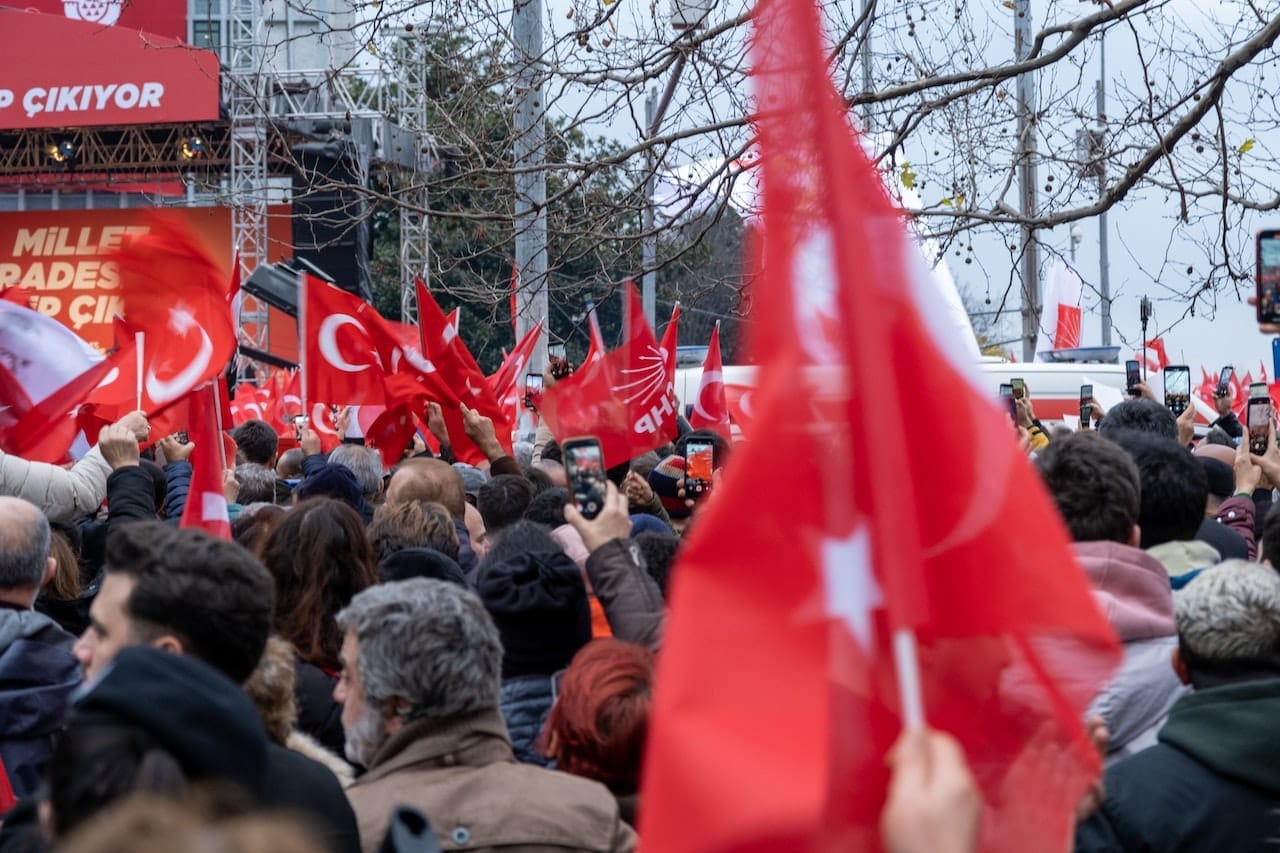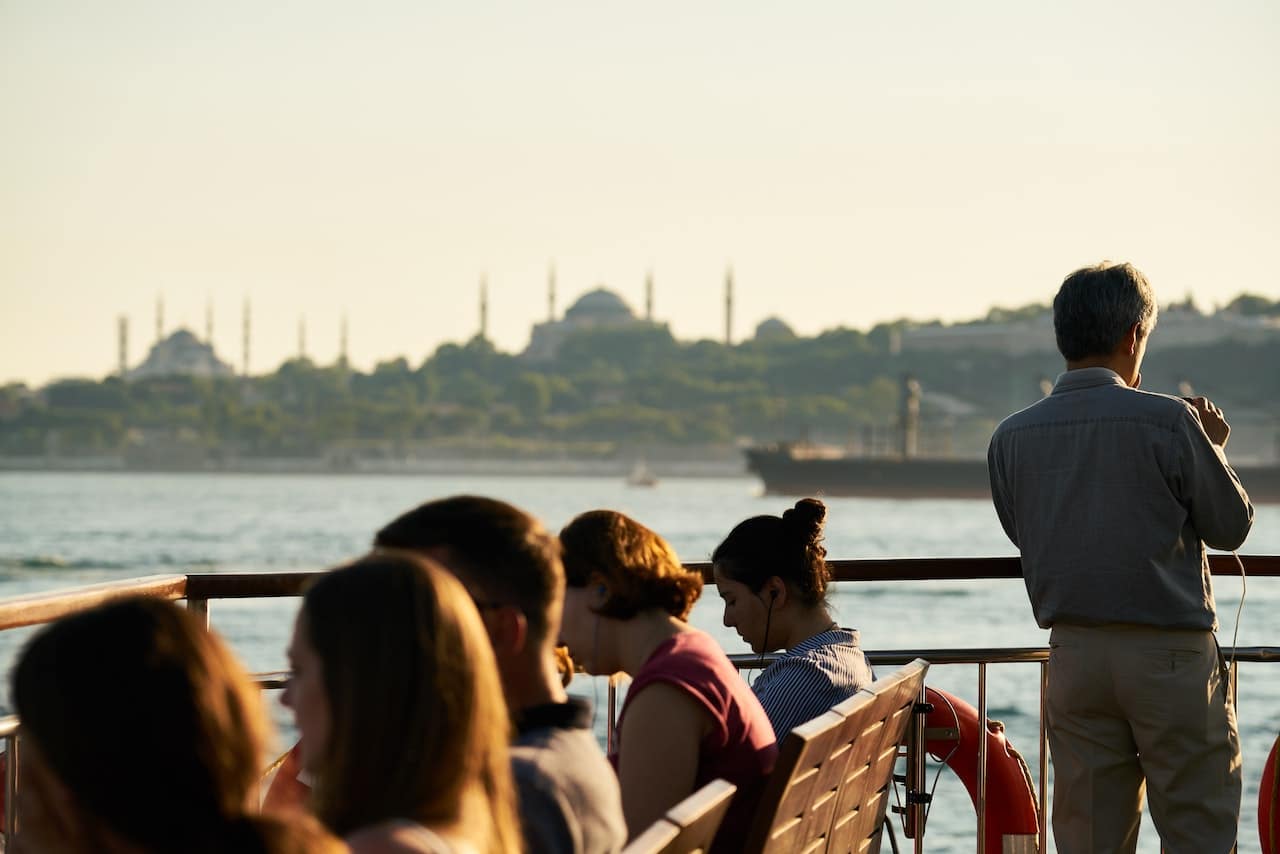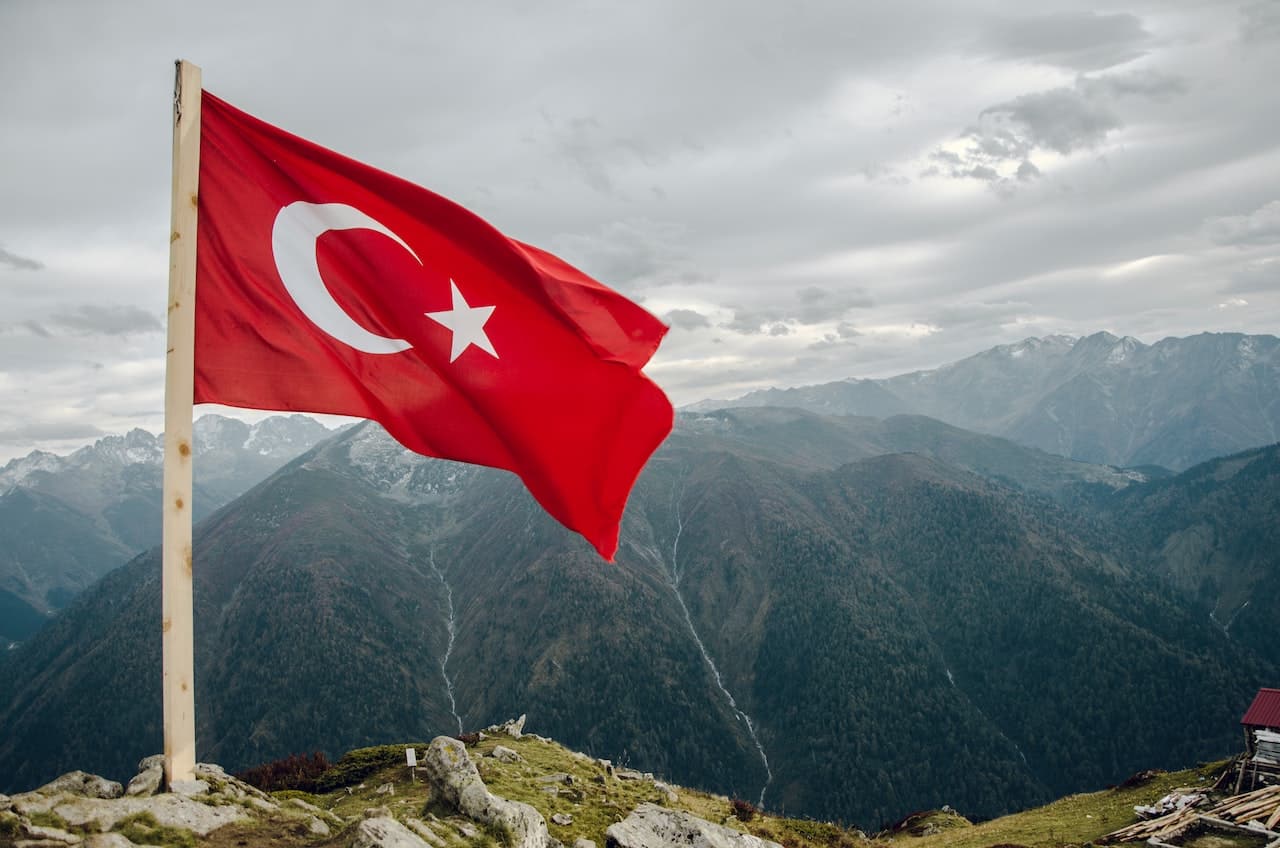If you are to make a list of the top most beautiful countries, your list will definitely contain the name of Turkey. Besides beautiful landscapes, the religious and historical monuments make Turkey one of the go-to tourist destinations.
Besides tourists, businesses are also attracted to Turkey. First, however, businesses have to ensure whether the business environment is suitable to support businesses.
You must be thinking about how you can assess Turkey's business environment without entering the market. Well, we do have a solution for that. Today, we will conduct a Turkey PESTLE Analysis that will give you a complete insight into Turkey and its business environment.
By examining the political, social, technological, economic, legal, and environmental factors, you'll gain valuable insights into current affairs and what the future may hold. So buckle up, and let's explore the fascinating world of Turkey's business landscape.
The history of Turkey spans thousands of years, beginning with the ancient Anatolian civilizations such as the Hittites, Phrygians, and Lydians.
However, in this answer, we will focus on the evolution of Turkey as a modern nation-state from the early 20th century onwards. After World War I, the Ottoman Empire, which had ruled over much of the region for centuries, was in decline.

In 1923, the modern Republic of Turkey was established by Mustafa Kemal Ataturk, a military officer, and statesman who had led the country in the War of Independence against the Allied powers. Ataturk implemented a series of sweeping reforms aimed at modernizing and secularising Turkey.
These included adopting a new legal code based on European models, introducing a Latin-based alphabet to replace the Arabic script, and establishing a new education system.
Ataturk also sought to create a new Turkish national identity based on a shared language, culture, and history.
He discouraged expressions of religion in public life. Under Ataturk's leadership, Turkey became a parliamentary democracy. The ruling party, the Republican People's Party (CHP), dominated politics until the 1950s.
In 1950, Turkey held its first free and fair elections. The conservative Democrat Party (DP) won a landslide victory, ending the CHP's monopoly on power. The DP government pursued a more conservative agenda, promoting religion and traditional values, and Turkey's economy began to grow rapidly.
However, the government was overthrown in a military coup in 1960, and a series of further coups and interventions followed in the years that followed. Throughout the latter half of the 20th century, Turkey experienced political instability marked by frequent government changes, political violence, and military interventions.
However, Turkey emerged as a regional power during this time, leading in NATO and seeking closer ties with Europe. In recent years, Turkey has been governed by the Justice and Development Party (AKP), which gained power in 2002.
The AKP has pursued a more Islamist agenda, promoting conservative values and expanding the role of religion in public life. The party has overseen economic growth and modernization. Still, it has also been criticized for eroding democratic institutions and suppressing opposition voices.
Turkey remains a significant player on the world stage, with a rich cultural heritage and a dynamic, diverse society.
Now that we have an insight into the history of Turkey let's discuss what PESTLE analysis is. PESTLE analysis is a technique that is used by businesses to analyze the external factors that impact the operations of businesses.
In today's PEST analysis, we will discuss different external factors that impact businesses in Turkey.
Political Factors That Affect Turkey
Political factors impact the business environment in a country significantly. This section will focus on the political factors that impact businesses in Turkey.
One key political factor affecting businesses in Turkey is the country's geopolitical location. Turkey sits at the crossroads of Asia and Europe, making it a strategic location for international trade and commerce.
However, this also makes the country vulnerable to political instability and conflicts in neighboring regions, such as the ongoing Syrian civil war.
Another political factor that affects businesses in Turkey is the country's relationship with the European Union (EU). Turkey has been a candidate for EU membership since 1999 but has not joined the bloc.
The slow progress towards membership has led to a strained relationship between Turkey and the EU, with potential implications for businesses operating in Turkey.
In particular, EU regulations and standards may differ from those in Turkey, creating challenges for businesses that operate in both regions.
The political climate in Turkey is another factor that affects businesses. The country has experienced political instability recently, with a failed coup attempt in 2016 and a crackdown on opposition voices.
The government's response to these events has raised concerns about human rights and the rule of law, which can impact businesses operating in Turkey. For example, businesses may face restrictions on freedom of speech and assembly, as well as increased surveillance and censorship.

Economic Factors That Affect Turkey
Turkey has a diverse economy, combining industry, agriculture, and services. Let's discuss how different economic factors impact the operations of businesses in Turkey.
Inflation is one of the most significant economic factors affecting businesses in Turkey. Turkey has experienced high inflation levels recently, with rates reaching as high as 85.5% in October 2022.
High inflation can impact businesses in several ways, including increased production costs and reduced consumer purchasing power. Additionally, inflation can lead to currency fluctuations and financial instability, impacting businesses that rely on imports or exports.
The country's labor market is another economic factor affecting Turkey's businesses. Turkey has a large, young workforce, but labor laws and regulations can be complex and bureaucratic. The minimum wage and social security contributions can also be high, impacting businesses' bottom line.
Moreover, Turkey's trade policy and relationship with global markets also impact businesses in the country. The country has a customs union with the European Union (EU), which allows for the free movement of goods between Turkey and the EU.
However, trade disputes with the United States and other countries can impact businesses that rely on exports. Besides that, the government's economic policies also impact businesses in Turkey.
The government has focused on attracting foreign investment and liberalizing the economy, which has led to the privatization of state-owned enterprises and removing barriers to entry for some sectors.
However, some businesses may face challenges due to regulations and bureaucratic red tape. Additionally, corruption and political influence in decision-making can pose challenges for businesses.

Social Factors That Affect Turkey
Every business operates in a society. Hence, various social factors impact businesses. This section of the PESTLE analysis will discuss some of the social factors that affect businesses in Turkey.
Turkey has a population of approximately 86 million people, with a mix of ethnicities and religions. The country's social dynamics are shaped by its historical and cultural context and geopolitical location.
One of the most significant social factors that impact businesses in Turkey is the country's demographics. Turkey has a young population, with approximately 48.3% of the population under the age of 30. This is considered both an opportunity and a challenge for businesses operating in the country.
Turkey's cultural diversity is another social factor that impacts businesses. The country has a rich and diverse cultural heritage, with influences from Europe, Asia, and the Middle East.
This diversity can pose both opportunities and challenges for businesses. Companies that can navigate cultural differences and adapt to local customs and traditions are more likely to succeed.
Gender roles and relations are also social factors that impact businesses in Turkey. While women make up a significant portion of the country's workforce, they still face barriers to full economic participation.
Women are more likely to be employed in informal and low-paying jobs, and gender discrimination is still prevalent. Therefore, businesses prioritizing gender equality and diversity are more likely to attract top talent.
Religion is another social factor that impacts businesses in Turkey. The country is predominantly Muslim, with a minority of Christians and Jews. While religion is not typically a factor in business operations, it can impact some sectors.
For example, the food industry must adhere to halal requirements. In addition, the fashion industry may need to consider modesty requirements in clothing design.

Technological Factors That Affect Turkey
In a PESTLE analysis, the technological factors refer to the impact of technology on the business environment. Therefore, let's discuss some technological factors that impact businesses in Turkey.
Turkey has made significant investments in its technology infrastructure. The government has prioritized the development of a robust telecommunications network, which has led to high internet penetration rates.
This has facilitated the growth of the technology sector in Turkey, with many startups and established tech companies choosing to set up operations in the country. Moreover, Turkey has also invested in R&D in recent years.
The government has introduced incentives to encourage businesses to invest in R&D, such as tax breaks and funding opportunities. This has led to the growth of the technology sector in Turkey. As a result, companies are now focusing on R&D to drive innovation and growth.

Legal Factors That Affect Turkey
Legal factors hold great importance in determining the business environment in an economy. This section will discuss the legal factors that impact businesses in Turkey.
Intellectual property protection is a legal factor impacting businesses in Turkey. However, Turkey has made significant strides in improving its IP laws and regulations in recent years.
However, businesses operating in the country must still navigate a complex IP landscape, with issues such as trademark infringement and patent violations being relatively common.
As a result, companies must take steps to protect their IP in Turkey, such as registering trademarks and patents and enforcing their IP rights through legal action if necessary.
Moreover, labor laws play a significant role in impacting businesses in Turkey. Turkey has a well-established legal framework governing labor relations, which includes several laws and regulations designed to protect workers' rights and ensure a fair and safe working environment.
While they are designed to protect workers' rights, they can also create challenges for businesses regarding cost and compliance.
For example, businesses operating in Turkey must ensure they comply with relevant labor laws and regulations while managing their labor costs effectively.

Environmental Factors That Affect Turkey
A Turkey PESTLE analysis would not be complete without considering the environmental factors that impact businesses in the country.
The first environmental factor that affects businesses in Turkey is air pollution. The country's urban areas are particularly affected by air pollution, with high levels of particulate matter and other pollutants.
This can impact employees' health and create challenges for businesses operating in affected areas, such as the need to provide protective equipment for employees or to adapt work schedules to minimize exposure to pollution.
Another important environmental factor is water scarcity. Turkey is a water-stressed country with a limited supply of freshwater resources. This can create challenges for businesses that rely on water, such as those in the agriculture, food, and beverage sectors.
Businesses must manage their water use effectively by implementing water-saving technologies or sourcing water from alternative sources.

Turkey PESTLE Analysis: Final Word
Turkey has immense business potential, with a rich cultural heritage and a dynamic, diverse society. First, however, businesses need to assess the external factors that can impact their operations, and a PESTLE analysis is an effective tool to do so.
In this PESTLE analysis, we discussed the history of Turkey. After that, we conducted the PESTLE analysis to analyse the business environment of Turkey. After reading this article, we are sure that now you know how different external factors impact businesses in Turkey and what the PESTLE analysis framework is.
Moreover, if you liked reading this article and want to read similar articles, look at some examples of PESTLE analysis.










